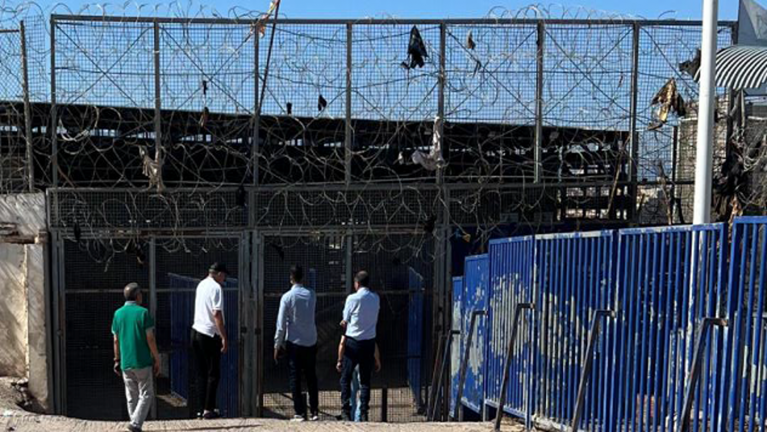Established in 2013, AfD faced their first electoral contest in the same year, but only received 4.7% of the votes, narrowly missing the electoral threshold of 5% by a few thousand votes. At the 2017 elections, AfD secured 12.6% of all votes, becoming Germany’s third largest political party. Despite a small setback in the 2021 elections, where their support shrunk to 10.4%, in the snap 2025 elections, AfD received an astounding 20.8%, becoming Germany’s second largest political party with 152 seats in the Bundestag.
Despite their success, since they have been branded as far-right, all other political parties have adopted a “firewall” (Brandmauer) policy to isolate AfD. The original idea of the firewall comes from the aftermath of the Second World War, and aims to prevent any far-right party from participating in government. Due to this label AfD, faced numerous campaign hurdles, such as being excluded from public debates and facing attacks from every political party.
AfD defied these institutional setbacks due to a multitude of reasons. First, AfD developed a consistent and familiar platform over the past decade. This contrasts with Germany’s other political parties who often changed their platform and policies due to the general instability Germany faced over the past ten years. Beginning with the 2015 migration crisis, Germany has endured a decade of unprecedented challenges. Angela Merkel, then Chancellor and leader of the center-right CDU, responded to the crisis by admitting millions of migrants, fundamentally altering German society. In 2020, the coronavirus pandemic swept into Germany, which caused and worsened countless economic problems, from industrial shutdowns to supply chain issues, and shortages, revealing previously unknown weakness in the German economy. Germany also faced a political transition as Angela Merkel left the chancellorship after 15 years governing Germany, she was replaced by center-left chancellor Olaf Scholz of the Social Democratic Party.
Then, in 2022, the Russian-Ukrainian war began. Germany, heavily dependent on Russian gas, nevertheless supported EU sanctions on Russian energy. This was at the same time that Olaf Scholz’s coalition partners, the Green Party successfully pushed through their forced green transition. Because of this, radical policies were enacted to protect the environment but in reality, only worsened Germany’s global competitiveness. Since then, Germany has consistently experienced economic instability, inflation, and rapidly rising energy prices. Germany, once the economic envy of the world, became the worst-performing major economy in 2023. Economic instability always results in some political frustration, and Germany’s recent troubles are no exception.
Another factor contributing to Germany’s growing political dissatisfaction is German’s changing view on immigration. As millions continue to flow into Germany, new tensions have emerged, especially in housing and integration. Many migrants, particularly from the Middle East have struggled to integrate into German society. When violent crime is committed by those with a refugee background, public opinion often turns against immigration, and the large increase in refugees and migrants have naturally led to an increase in crimes committed by them. This has led to the German public seeing migration and crime as interlinked. In this social and political milieu the AfD, as an insurgent opposition party, could easily use this public feeling to their own benefit.
The main platform of AfD, after all is stronger border protection and reduced migration. This position, after Merkel’s open-door policy, is popular among many voters. AfD has also developed an ambitious economic program designed to reverse many of the changes introduced by Scholz’s governing coalition, another popular policy for Germans suffering economic pain. With their bold platform, AfD sent a clear message to anyone dissatisfied with the German status quo, that only they are the party not afraid to make fast and significant changes.
AfD’s political strength in the 2025 elections is also impressive given the remarkably high turnout of 82.5%. While this high turnout is normal in a polarized society like Germany’s it cannot alone explain AfD’s rapid growth. It is possible that the so-called “firewall” encouraged voters concerned about fundamental rights like freedom of speech to rally around the party. It is easy to see how the institutional attacks on AfD could sway those undecided voters skeptical of the firewall and responsive to AfD’s campaign. For many of AfD’s supporters, outside influence may have also played a determining role. When Elon Musk, one of the world’s most influential and wealthiest people endorsed AfD and interviewed Alice Weidel, AfD’s co-leader and candidate for chancellor, he directly intervened in German politics. This support was especially important for undecided voters because it showed AfD had international and influential supporters. However, Elon Musk was not the only influential figure who openly stood up for the right-wing party. Vice President JD Vance also expressed clear sympathy for the party. Nine days before the German election, he met with Alice Weidel and condemned Germany’s “firewall”. This meeting undoubtedly sent a message to voters that AfD is seen as a partner in Washington, another characteristic that could sway voters who desire a strong German-American relationship or were sympathetic to Donald Trump’s agenda.
Although AfD's surge in popularity and second-place finish in the February 2025 election are unlikely to secure them a place in any governing coalition, the continued refusal of the center-right CDU/CSU to cooperate with them all but guarantees a coalition similar to the previous one. Yet the collapse of Scholz’s government has already demonstrated that such establishment alliances are unsustainable in the long run. Should a similar arrangement be revived, it will likely face the same internal discord and fragility. For AfD, this increasingly looks less like a matter of if they will enter government—and more like a matter of when.









